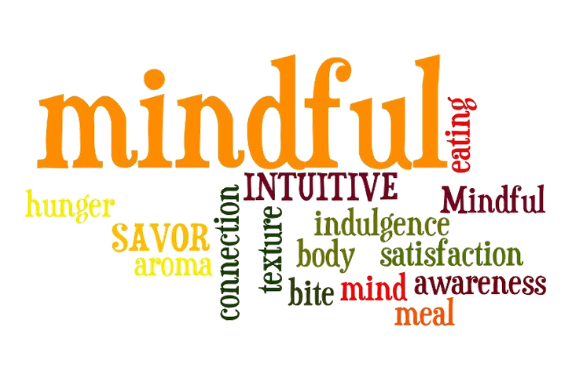Basic Principles
The basic principles of appetite awareness are simple. First, take charge of your eating decisions so that you are not as vulnerable to environmental signals/triggers (Ex: co-worker left hot Krispy Kreme donuts on in the break room – substitute with your weakness) to eat or do restrict you’re eating (Ex: dieting or resisting something you really want). Second, work with your internal appetite signals instead of attempting to fight your biological weight regulation system. It is possible to make peace with your appetite and your body.
Our Appetite Regulation System
We are all born with a biologically based appetite regulation system. Overeating becomes more of problem as children get older and they have access to many non-nutritious, high-calorie snacks, or they are pressured to clean their plate even when they are not hungry. Eventually, we simply ignore our natural stomach cues of hunger and fullness. Also, skipping meals, restricting calories, overeating and lack of exercise also throws off stomach cues.
Do you eat mindlessly, with little awareness of your decisions or do you obsess about every bite you take?
Keys to Controlling How Much you Eat
Three key concepts in regulating the amount you eat and truly take control of food decisions rather than food controlling your decisions:
- Learning to make better decisions to start and stop eating
- Learning how to stop eating effectively. This is critical to reestablishing your sense of control over eating
- Take caution when eating more ‘diet foods’. People tend to compensate by eating more when drastically changing food type to low-fat or low-calorie
Where do you begin? Start by keeping a log of your eating events. When you are about to start an eating event (ie meal, snack, grazing, etc) are you truly hungry or are you simply eating because the food is available?
Understand there is a difference between feeling satisfied after a meal vs simply just wanting to eat more because you can. Accept that when you feel stuffed, you have overeaten. Constant overeating leads to consistent weight gain and other health issues.
Learn what moderate fullness feels like for you (slight stomach distention, the point before feeling stuffed) – this generally leads to weight maintenance or slow weight gain over time.


